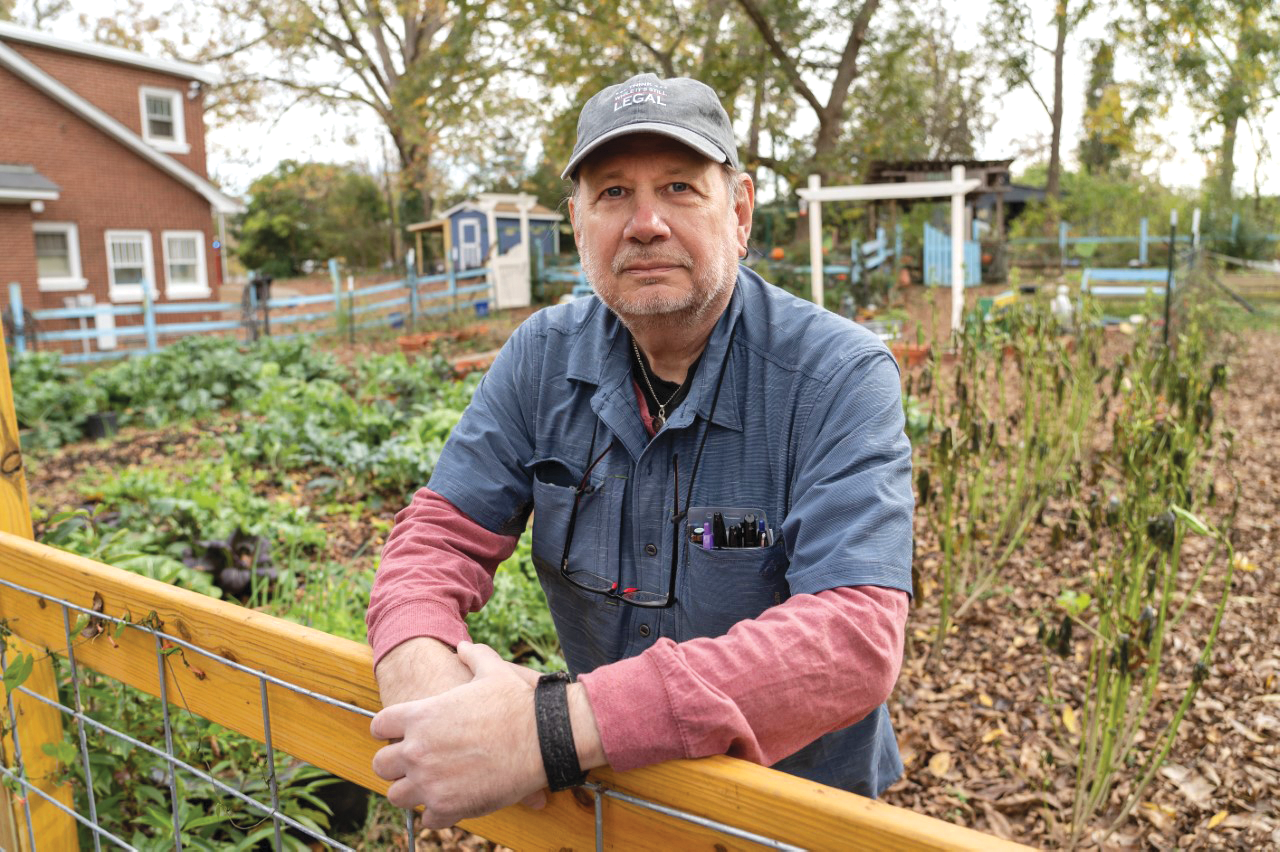Michael Strickland's Garden Studio class provides an opportunity for students who want to experience hands-on learning in home-scale gardening and food production.
Studies show that spending time in the garden can help improve focus and memory, relieve stress and build a sense of confidence. This is one of the reasons why Lecturer in Environmental Studies and English/PWR Michael Strickland began teaching ENS 2200 and 2210 Garden Studio, a class that meets fall and spring every year. The class was designed as an opportunity for students who want to experience hands-on learning in home-scale gardening and food production. “The idea behind this class was to help students develop gardening skills that they can use,” says Strickland. “Now that they know the why and how, they’ll be able to start a garden on their balconies, in their backyard or even in their kitchen.”
The class is taught almost entirely in the Elon Community Garden, which started as part of an honors student’s thesis in 2006. The student created a few gardening plots to strengthen her research, and asked Strickland to maintain the garden after graduation. Strickland instantly saw the possibility that a student-run garden possessed. By 2010, he had expanded the permanent space for the garden, as well as created a class to ensure that future students could tend and learn from the garden.
Now, the garden has more than a few plots. In a typical class, students contribute to the routine maintenance of the garden, work on independent research projects and discuss plant cultivation from a humanistic and environmental perspective. The students also collaborate with the Elon Community Gardening Club to tend to plants, develop new seed collections and plan a harvest festival at the end of each semester — a fall pumpkin festival and a spring strawberry festival. During the festivals, students adopt out plant seedlings, raising money to invest in the garden. While the course is designed to be semester-long, many students take the class during the fall and spring semesters to gain seasonal perspectives.
Students keep a journal throughout the semester, connecting what they are learning to their own ideas. Every student is also able to offer their own perspective on gardening, as the class is made up of students from many different backgrounds. “I love teaching this class at Elon because everyone comes from a different place and can offer and learn new things,” Strickland says. “A lot of students are trying regional vegetables that they’ve never heard of, and some students come from climates where our North Carolina year-round gardening experience isn’t possible.”
About the professor
Lecturer in Environmental Studies and English/PWR Michael Strickland is the director of the Elon Center for Environmental Studies. He has been teaching English/PWR for nearly 40 years and has been an environmental studies professor for more than 20. He has been working with students in the Elon Community Garden since its formation.
Recommended materials
- “How to Grow More Vegetables” by John Jeavons
- “Kiss the Ground” documentary (2020)



